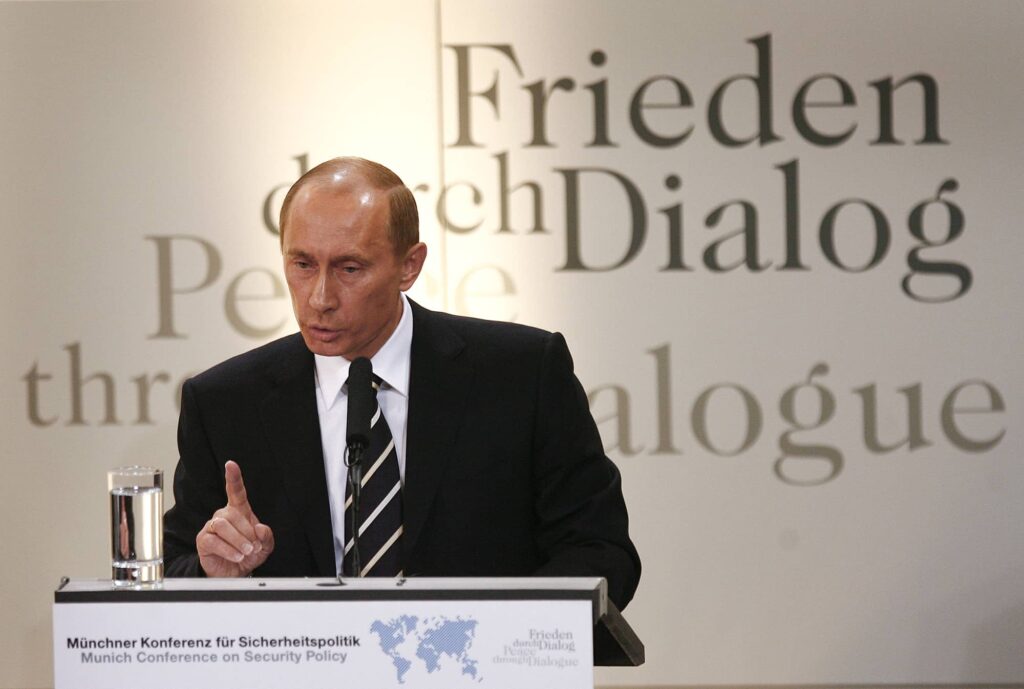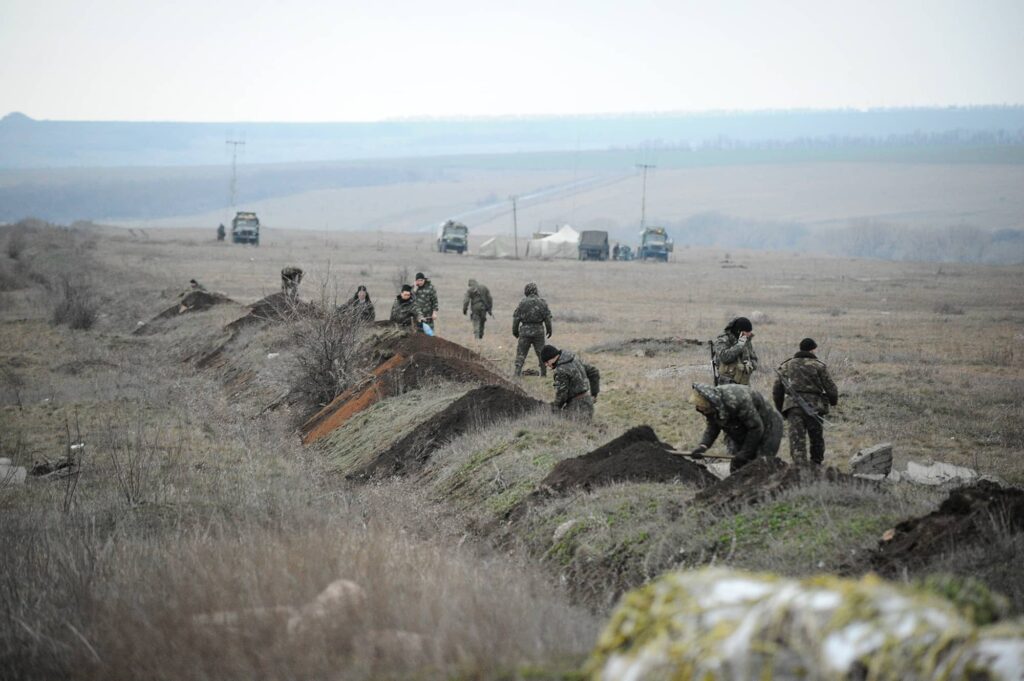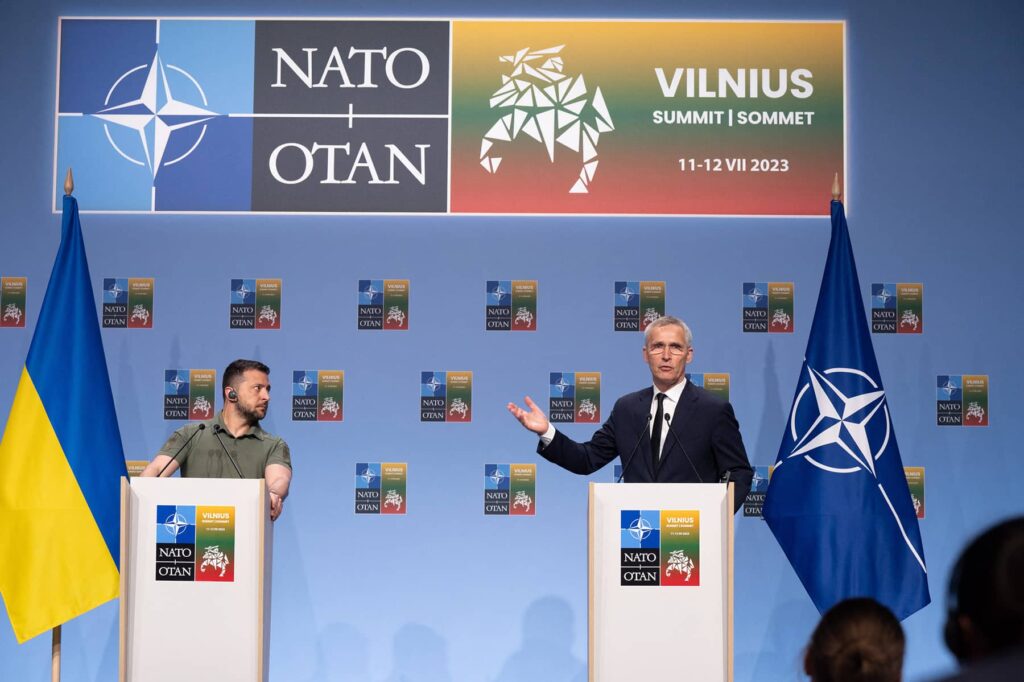I am a child of the Cold War. Growing up in Sweden, I was acutely aware of the occupation and suffering of the Baltic peoples. I visited Estonia and Latvia for the first time in 1974. In Riga I met a young Latvian who told me instantly: “We live in an occupied country.” My dream was to stand on the Red Square in Moscow and shout: “Down with communism!” In the fall of 1991, my dream came true, when I started working as an economic advisor to the new Russian reform government with my own office just off the Red Square.
The most beautiful time of my life was the second half of 1989, when the communist dictatorships in Eastern Europe collapsed one after the other under democratic pressure from the people, as Timothy Garton Ash captured so elegantly in his book We the People. Ralf Dahrendorf rightly compared these popular risings with the great liberal revolutions of 1848.
The marker of the time was Francis Fukuyama’s outstanding article “The End of History.” While Fukuyama went too far in his interpretations, his article remains a monument of the time. Communism was dead as an ideology and replaced by marketization and democracy. Its key passage reads:
“The passing of Marxism-Leninism first from China and then from the Soviet Union will mean its death as a living ideology of world historical significance. For while there may be some isolated true believers left in places like Managua, Pyongyang, or Cambridge, Massachusetts, the fact that there is not a single large state in which it is a going concern undermines completely its pretensions to being in the vanguard of human history. And the death of this ideology means the growing “Common Marketization” of international relations, and the diminution of the likelihood of large-scale conflict between states.”
Soon afterwards, Samuel Huntington published his book The Third Wave on the third wave of democratization that started in 1974 in Portugal and Spain, continued in most of Latin America, Eastern Europe, some countries in Asia and much of Africa. For thirty years, from 1974 until 2004, ever more countries in the world became democratic according to Freedom House.
For the world as a whole, this was a time of great economic growth and economic stability, while the collapse of communism was accompanied with great economic suffering. Altogether, the world has recorded 56 hyperinflations, that is, more than 50 percent inflation in the course of one month. Of these 56 hyperinflations, no less than half, 28, occurred in former communist countries in the former Soviet Bloc. Yet, from 2000 all these economic disasters had ended and the world as a whole grew more than ever from 2000 to 2007.
One would hope that this increasing welfare would make people better, more enlightened and wiser, but alas that is rarely the case. Instead, various forms of folly are proliferating. Much of the Western world had become spoilt and irresponsible. According to the authoritative Freedom House, democracy in the world has declined every year since 2005. Meanwhile, the West has gone astray. I would emphasize three serious mistakes.
First, the global financial crisis of 2008 was a typical example of excessive indebtedness because of gluttony. Since Western public debts are even larger now this can easily be repeated, as interest rates are rising.
Second, Western Europe foolishly believed in Fukuyama’s eternal peace and disarmed almost as badly as they did in the 1920s. Robert Kagan captured the European mind in his book Of Paradise and Power with the catchy phrase: “Americans are from Mars; Europeans are from Venus.” While many European states let their defense expenditures fall to as little as 1% of GDP, the United States maintained military expenditures of 3.5% of GDP and has steadily accounted for nearly 40% of global military expenditures.
Third, the West lost strategic focus. The terrorist attacks on New York and Washington on 9/11/2001 made the Western world go crazy, perceiving extreme Muslim fundamentalism as their main enemy. The US decision to go to war in Iraq was a costly mistake. In the meantime, both the United State and Europe ignored Russia’s renewed imperialism, which was evident at since Putin’s anti-Western Munich speech in February 2007, or China’s rise.

The West ended up with a complete military failure. Europe disarmed and its limited military capabilities were misdirected to rather irrelevant theaters in Afghanistan and Iraq. The United States maintained its military force, but it became completely misdirected, losing the sight of Russia being the main destabilizing force in the world.
Western security policy in Europe has been nothing but a serious of misjudgments and failures since February 2007. At the NATO summit in Bucharest in April 2008, the United States advocated Membership Action Plans for Ukraine and Georgia, but they were vetoed by Germany and France. Ukraine and Georgia were left hanging in a security limbo, promised NATO membership but not offered any road to membership. As if to emphasize that NATO was not serious, Putin was invited and spoke aggressively about Ukraine not being a legitimate nation. As if to add insult to injury, President Bush went to see Putin in Sochi after the summit as if nothing had happened.
Putin assessed the West accurately and attacked Georgia in August 2008, occupying one-fifth of the country. As the temporary chairman of the EU Council, French President Nicholas Sarkozy seized the initiative, condoning the Russian occupation, as beautifully recorded in the Le Monde editor Sylvie Kauffmann’s new book Les Aveuglés (The Blindsided). The West did not even impose any sanctions on Russia. In January 2009, Barack Obama became US president. One of his first initiatives was to launch his “reset” with Russia, effectively accepting Russia’s occupation of Georgian territories.
Putin noticed that the West did not really mind his aggression, so why not continue? He had made his whole political career on wars – in 1999 against Chechnya, in 2003 against the Russian oligarchs, in 2008 against Georgia. Each war increased his popularity and facilitated his enhanced repression inside Russia, so why not continue?
In February 2014, when the Ukrainian parliament ousted President Viktor Yanukovych with a majority of more than two-thirds, Putin was ready. He utilized Russia’s lease of the Ukrainian port of Sevastopol in Crimea to suddenly occupy the whole peninsula with Russian special forces without insignia. The lame US administration did not even state what was going on. Instead, it told the new provisional Ukrainian government not to pursue armed resistance. On March 18, Russia annexed Crimea.
The West refused to recognize this annexation. Both the United States and the EU imposed sanctions on the culprits, Crimea, and relevant enterprises, but that was it. Putin and his neo-imperialists cheered. On April 17, 2014, Putin made his most aggressive speech ever, calling for half of Ukraine, “New Russia”, to become Russian territory. Yet, the new democratic Ukrainian authorities swiftly organized armed resistance to the attempts by Russian special forces to seize these territories. As a result, only half of the two easternmost regions Donetsk and Luhansk were seized by the Russian forces.
One would have assumed that the United States would engage against this blatant Russian aggression, but President Barack Obama remained laidback, underestimating the Russian threat to global security. In March 2014 he stated: “Russia is a regional power that is threatening some of its immediate neighbors — not out of strength but out of weakness,” He continued: “They don’t pose the number one national security threat to the United States”.
Obama refused to get engaged in Ukraine. He never visited even that country. Instead, German Chancellor Angela Merkel and French President Francois Hollande saw their duty to engage in Minsk negotiations with Ukrainian President Petro Poroshenko, elected in May 2014, and Putin. Initially, the Minsk process impeded the Russian offensive, but it did not lead to any peace. Instead, it offered Putin respite to mobilize more forces for a future offensive.
After Russia sent in its special forces into Ukraine in the summer of 2014, first the United State and then the EU adopted far more serious sectoral sanctions on finance, oil technology and military technology in July. They limited Russian access to international finance. At this time, blatant Russian aggression was obvious. The West should have done everything to support Ukraine militarily. Instead, Washington got caught up in a futile internal conflict whether to provide “lethal” arms to Ukraine or not. Unfortunately, Obama won against Vice President Joe Biden and most of his administration. The first countries to deliver real military support to Ukraine appear to have been the United Kingdom and Canada, while Europe stayed aside.

The erratic President Donald Trump allowed the delivery of Javelin anti-tank weapons, apparently because Obama had blocked it, but then insisted on blackmail against the new President Volodymyr Zelensky to receive false evidence against the Biden family in order to allow military aid approved by Congress. As his public statements show, Trump favored Putin, while not fully in control of his more pro-Ukrainian administration.
In April 2021, a couple of former top Ukrainian officials told me that Russia would attack. In July 2021, Putin published his long article “On the Historical Unity of Russians and Ukrainians,” which denied the existence of the Ukrainian nation – his public position since 2008. It was an evident declaration of war. The United States, the UK and Canada got his message, while Germany and France as usual understood nothing. The United States, the UK, Canada, the Baltic states and Poland started delivering a lot of serious arms to Ukraine.
Yet, in April 2021, the United States gave a dubious signal to Russia. Two US destroyers were on their way into the Black Sea, but they received orders not to proceed from the White House. The United States signaled that it had given up on the freedom of navigation in the Black Sea, effectively reneging on the 1936 Montreux Convention. In June 2021, British and Dutch naval ships entered the Black Sea but were illegitimately attacked by the Russian navy, while the United States stayed passive.
After Russia attacked Ukraine on February 24, 2022, we were a large group of people here in Washington who called for a USA-supported no-fly zone over part or the whole of Ukraine, as the United States had done in Iraq, but once again the administration did nothing, seemingly deterred by Russian threats.
When Russia launched the whole-scale war against Ukraine, the collective West made many good things. First of all, it got together and it included also countries such as Japan and South Korea. Second, it started delivering all kinds of serious warms. Third, it imposed severe sanctions, notably on Russian central bank reserves and Western technology.
Unfortunately, the West failed to declare a clear strategy or goal for what it was doing and that remains the case. The United States and Germany are the dominant arms suppliers, but they have failed to clarify what they are up to. All along, the United States has refused to deliver the most relevant arms it has at hand for no apparent reason but somebody in the White House worrying about provoking Putin, a nuclear war or World War III, apparently unaware that the most provocative action is to hold back in fear of Russia. The West (the United States) has failed to deliver air force and long-distance missiles in time, and it has absurdly prohibited Ukraine to attack its aggressor’s bases in Russia.
Today, Russia’s war against Ukraine has lasted for more than two years. Russia will not give up until it is beaten. Then we had better make sure that it gets beaten. Russia has habitually threatened with nuclear war for all kinds of minor infractions, so Kremlin threats should not be taken seriously. The United States has the best arms, but will pro-Putin Trump come back? The United States has to do all it can before such a calamity may happen. Therefore, the United States now should deliver all the key arms to Ukraine as fast as possible, notably long-distance missiles. The United States needs to make clear that Ukraine is fully entitled to attack all the bases of its aggressor.
The collective West needs to rethink its Ukraine and Russian policy and adopt a strategy. First of all, the collective West must establish the goal: Ukraine’s victory and recovery of all its territory from 2013. It must defeat Russia, which should be forced to pay war reparations to compensate Ukraine. Only in material terms, the World Bank assesses these costs at about $500 billion. The hundreds of thousands of Ukrainians who have been deported to Russia must be allowed to return. The tens of thousands of war crimes committed by Russian troops should be prosecuted and punished. The United States and some other Western countries must no longer hold Ukraine back from attacks on Russian strategic and military assets but instead welcome them.
The best that can happen to Russia is defeat. When Russia has been defeated in a war, it has usually reformed and often changed ruler, as after the Crimean War 1853-56, the Russo-Japanese War 1904-5, and the war in Afghanistan 1979-88. Putin is today’s Hitler and he has reversed Russian repression to Stalinist times. No Russian leader could possibly be worse than Putin. He appears to have opted for eternal war, which is likely to end with his demise. We should welcome regime change in Russia, though it is up to the Russians to accomplish it. Sensible Russian liberals, such as Leonid Gozman and Viktor Shenderovich, call for a Russian capitulation commensurate with Germany’s capitulation in May 1945.
Many believe that Russia will benefit from a long war because it has a larger population and economy than Ukraine, but the United States was defeated in Vietnam and Afghanistan after long wars. Still, a long war will cost everybody far more. The West should return to Colin Powell’s successful Gulf War doctrine of shock and awe to achieve Ukraine’s victory over Russia.
Ukraine defends Europe. Therefore, the West should stop drip-feeding Ukraine with old weapons and instead deliver all its best relevant arms as soon as possible so that Ukraine can save its population and win. Nobody can use them better than the skillful Ukrainian soldiers. If Ukraine were to lose, the Russian hordes would march further in Europe. The least we can do is to give Ukraine all it needs to win. Denmark and the Baltic states have set splendid examples.
Specifically, the West should deliver potent long-distance missiles, such as ATACMS and Taurus, and it should provide Ukraine with a strong air force so that it can gain air supremacy. Absurdly, the West has made Russia rather than Ukraine a no-fly zone. Instead, it should provide Ukraine with proper air defense. Thousands of Western volunteers fight for Ukraine. Why not Western pilots as well?

The eminent retired US Generals Ben Hodges and Philip Breedlove have long explained that Crimea is likely to be decisive for the outcome of the war. In the middle of the 19th Century, tsarist Admiral Pavel Nakhimov stated that who controls Sevastopol controls the Black Sea. A key strategic goal is that Ukraine and not Russia controls Sevastopol. To cut off Crimea from Russia Ukraine needs to destroy the two bridges to Crimea.
To force Russia to pay war reparations to Ukraine, the West should confiscate the $300 billion of Russian Central Bank reserves frozen in the West. Canada and the United States have adopted such laws. They should implement them and the EU should follow. It is unconscionable that Russia while violating all international laws can have its state property shielded in the West or that Belgium indulges in war profiteering by taxing frozen Russian state assets to its own benefit.
As long as the intensive war continues, the West also needs to provide Ukraine with $100 billion a year – $50 billion at least in military assistance, $40 billion to finance the civilian government and $10 billion in humanitarian assistance.
Western sanctions bite, but they have to be strengthened. Thanks to Western financial sanctions, the Russian economy has not grown since 2014. Last year Russia’s export revenues fell by 26 percent. The best way to reinforce Western trade sanctions would be if the West imposes prohibitive import tariffs on all imports from Russia as the EU is now doing on Russia’s agricultural exports. The West no longer applies the Most Favored Nation tariffs to Russia, and the allowed WTO bounded tariffs are very high. Since the West trades so little with Russia higher tariffs will no longer have any significant impact on inflation in the West. The customs system functions well so enforcement problems would be minimized.
During the Cold War, the collective West cooperated in their Coordinating Committee for Multilateral Export Controls (CoCom), headquartered in Paris. It should be restored to render control of sensitive exports to Russia more effective.
Personal sanctions need to be coordinated, reinforced and streamlined as well. All sanctioning jurisdictions should agree on similar rules for sanctions, impose the same sanctions, and exchange classified information about the reasons. Meanwhile, those who condemn the war and withdraw from Russia should be delisted in all jurisdictions. Secret ownership in the West by sanctioned oligarchs should no longer be tolerated.
The West needs to start thinking about how to penalize Western companies that continue to work in Russia and support the Russian government with taxes and other benefits to its warfare. A reasonable idea would be that they be forced to pay penal taxes commensurate to what they pay to Russia.
The EU needs to start negotiations with Ukraine about its accession to the Union. On July 9-11, NATO will celebrate its 75th anniversary with a summit in Washington. The main event should be to invite Ukraine to become a member, which a big majority of the NATO members supported already last year in Vilnius.

